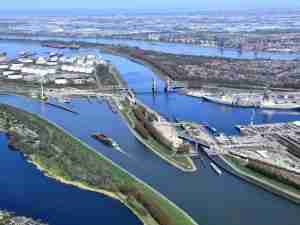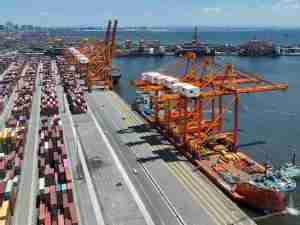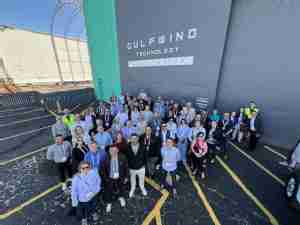Coast Guard prepares Houston Channel for opening after oil spill
By: Reuters | Mar 25 2014 at 08:24 AM | Ports & Terminals
The U.S. Coast Guard said it was preparing for the possible reopening on Tuesday of the Houston Ship Channel, the waterway for tankers supplying more than one-tenth of U.S. refining capacity that has been shut for three days after an oil spill.
The Coast Guard said planes were to begin flying after sunrise across Galveston Bay to determine the location of 4,000 barrels, or 168,000 gallons (636,000 liters), of heavy fuel oil spilled after a Kirby Inland Marine oil barge and a cargo ship collided on Saturday.
Coast Guard Capt. Brian Penoyer, commander of the cleanup, has called the spill “significant.” The Galveston Bay spill is far smaller than 260,000 barrels, or 11 million gallons, of crude oil released when the Exxon Valdez struck a reef in Prince William Sound in 1989.
The Coast Guard also prepared decontamination and inspection stations for ships entering and exiting the channel once it reopens.
As of Tuesday morning, 54 deep-draft ships waited to enter the channel headed to the port of Houston while 47 waited to leave, according to the Coast Guard.
Another four ships waited to sail to Texas City, Texas, where refineries and petrochemical plants are also located. One ship was waiting to exit Texas City. Five ships were also waiting to sail to Galveston.
Since the channel was shut, the nation’s second largest refinery, Exxon Mobil Corp’s 560,500-barrel-per-day (bpd) facility in Baytown, Texas, on the east side of Houston, has had to cut production.
The barge, which partially sank after the collision, was emptied of all remaining fuel oil and refloated by Monday, according to Kirby Inland Marine.
A total of 27 ships were collecting heavy fuel oil from the bay. Some of the oil has been pushed by north winds into the Gulf of Mexico, the Coast Guard said. The oil has also been washing ashore.
U.S. and Texas wildlife officials said late Monday that eight birds were confirmed dead from the oil spill. Seven birds that were covered with oil have been captured for cleaning, and another eight birds were observed covered with oil, but have not been captured. (Reporting by Erwin Seba; Editing by Jeffrey Benkoe)









